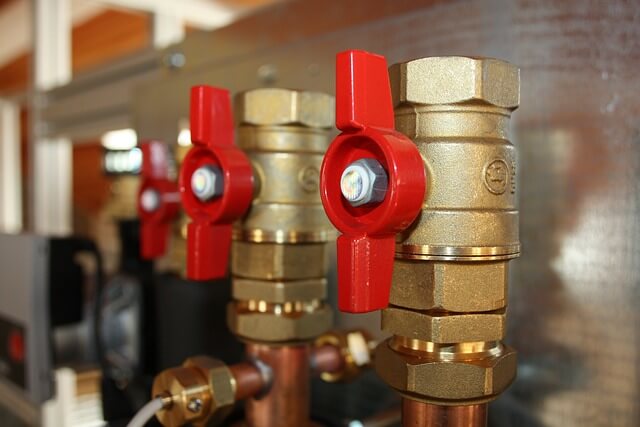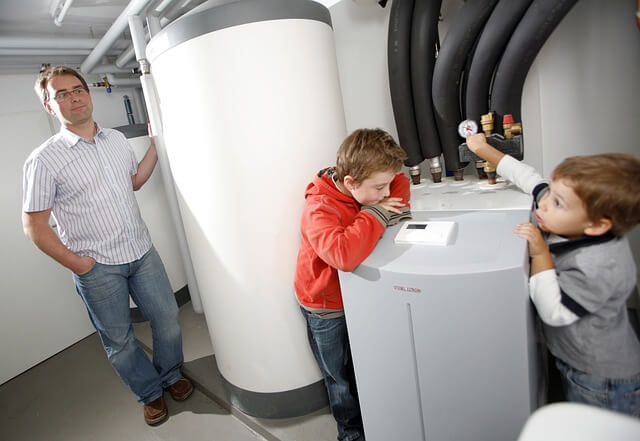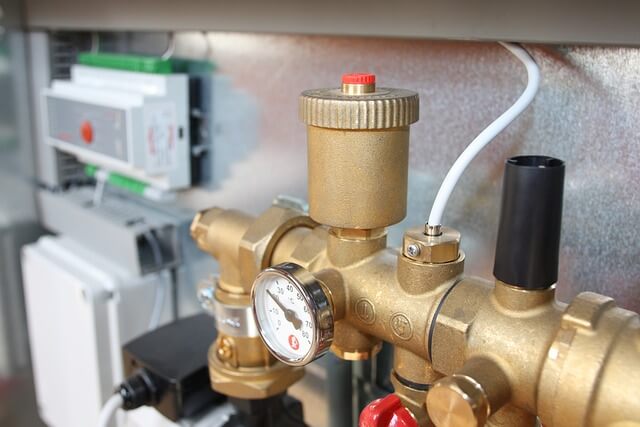Heat pumps use electricity to warm your home during the colder months and are an excellent way to save energy on heating costs.
But how does this technology work, exactly?
And what makes it so effective at reducing your heating bills?
Read on to learn all about the ins and outs of heat pumps and how they can benefit you throughout the year.

Table of Contents
What is a Heat Pump?

Heat pumps are a popular choice for many homes and businesses to heat and cool the space. But what is a heat pump exactly, and how does it operate?
Heat pumps are the devices that move heat from one place to another. They have cooling and heating capabilities, depending on the direction of the energy transfer.
In heating mode, the pump absorbs heat from the outside air or ground and transfers it inside the home or building.
In cooling mode, the pump moves heat from inside the building to the outside.
Compared to conventional systems, heat pumps are a lot more efficient since they don’t use combustion to produce heat. This means they don’t emit greenhouse gases and use much less energy. They also require less maintenance than other systems, as they have fewer moving parts and don’t rely on combustible fuels.
The fan blows air through the waves, which absorb or release heat depending on the mode. The refrigerant absorbs and releases the heat as it moves between the two units, using the compressor to maintain a steady temperature.
Heat pumps are a great way to reduce energy costs while keeping your home comfortable. Their efficient use of energy can help you save money on monthly bills while providing climate control year-round.
A Heat Pump Important Parts
Heat pumps are one of the most significant and cost-effective ways to heat and cool your home. At its simplest, a heat pump is a device that moves heat from one place to another.
It comprises two main parts:
an outdoor compressor/condenser unit and an indoor evaporator coil.
The outdoor unit is powered by electricity and works to draw heat from the air outside and move it into your home.
The indoor unit then distributes the warm air through ducts or vents throughout the house.
When used for cooling, the heat pump works in reverse by removing the warm air inside your home and transferring it outside. The outdoor unit pumps the warm air back out while the indoor unit circulates cool air indoors.
The Different Types of Heat Pumps
Let’s look at the different types of heat pumps and how they work.
Heat pumps come in three primary categories: air source, geothermal, and water. Each type has its advantages and disadvantages, so it’s essential to consider which type is right for you before making a purchase.
Air source heat pumps are the most common type and transfer heat from the air outside your home into your home’s interior.
This heat pump can be used year-round, providing heating and cooling capabilities. Air source heat pumps are typically the most cost-effective option but can be less efficient than other types in extreme temperatures.
Geothermal heat pumps are similar to air-source heat pumps, but instead of drawing warmth from the air, they remove it from the ground or a body of water.
This system is often more efficient than air source systems and provides cooling during the summer months. However, it can be more expensive to install and maintain than an air source system.
Finally, water source heat pumps transfer heat from a nearby body of water (such as a lake or river) into your home.
This system is typically the most efficient and can provide cooling and heating year-round. However, it’s also the most expensive type of heat pump and requires professional installation.
Read more : The 9 Secrets to Efficient Heating and Cooling
The Advantages and Disadvantages of Heat Pumps
Advantages
- Heat pumps use heat from outside air or the ground to heat fabulous homes.
- During the winter, they absorb the natural heat from the environment and transfer it inside.
- During the summer months, they share the heat inside with the outdoors.
- In this way, they can provide year-round temperature control with a single system.
- The best advantages of heat pumps are that they can provide efficient heating and cooling while using less energy than traditional systems.
- This results in lower energy costs over time.
- Heat pumps also require less maintenance than other systems, making them an attractive option for busy homeowners.
Disadvantages
- They are more expensive to purchase than other heating and cooling systems, although their long-term energy savings will eventually make up for this initial cost.
- Heat pumps are not as effective in extreme temperatures, so they may need to be supplemented with other types of heating and cooling for colder climates.
Heat pumps offer a practical and energy-efficient way to heat and cool your home all year round. While using them has some drawbacks, their energy savings over time can make them a worthwhile investment.
If you’re looking for an efficient way to keep your home comfortable no matter the season, a heat pump might be right for you.
How Much Does a Heat Pump Cost?
Heat pumps are energy-efficient for keeping your home comfortable in any season. But before you invest in one, it’s essential to understand how much a heat pump costs.
Generally speaking, the cost of a heat pump will depend on several factors, including the type of system, size and efficiency rating. Heat pumps range from around $2,000 to $10,000 for installation and equipment. The best method to determine the precise cost of a heat pump is to get an estimate from a professional HVAC contractor.
